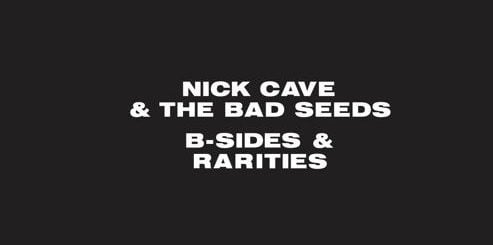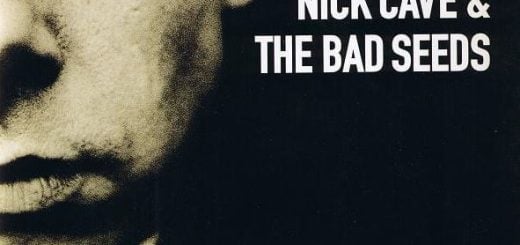Jubilee Street by Nick Cave & The Bad Seeds Lyrics Meaning – A Lyrical Deep Dive into Love, Regret, and Redemption
Lyrics
She had a history, but she had no past
When they shut her down the Russians moved in
I am too scared, I’m too scared to even walk on past
She used to say
All those good people down on Jubilee Street
They ought to practice what they preach
Here they are to practice just what they preach
Those good people on Jubilee Street
And here I come up the hill
I’m pushing my wheel of love
I got love in my tummy and a tiny little pain
And a ten ton catastrophe on a sixty pound chain
And I’m pushing my wheel of love on Jubilee Street
Ah look at me now
The problem was she had a little black book
And my name was written on every page
Well a girl’s gotta make ends meet
Even down Jubilee Street
I was out of place and time, and over the hill, and out of my mind
On Jubilee Street
I ought to practice what I preach
These days I go downtown in my tie and tails
I got a fetus on a leash
I am alone now, I am beyond recriminations
Curtains are shut, the furniture is gone
I’m transforming, I’m vibrating, I’m glowing
I’m flying, look at me now
I’m flying, look at me now
The haunting melody of ‘Jubilee Street’ by Nick Cave & The Bad Seeds resonates with a spectral grace that belies the visceral storytelling at its heart. As listeners, we are plunged into the murky depths of a songwriter’s soul, where the contrasting dichotomies of love and despair, sin and salvation, coalesce into a poignant narrative.
The song’s vivid imagery and stark confessions bear the indelible mark of Cave’s evocative songwriting. Through a close examination of the lyrics, one finds themselves wandering down the metaphoric Jubilee Street, encountering the ghosts of past and present, and ultimately confronting the transformative power of facing one’s demons.
Who is Bee? The Girl with a Shadowy History
Bee emerges from the lyrics as an enigmatic muse, a character with ‘a history, but no past’, encapsulating the essence of someone living on the fringes, remembered only through interactions, not a backstory. Her introduction sets a stage where loss of identity and erasure of personal history are contemplations that resonate in the recesses of Jubilee Street.
When Cave sings of Bee’s significance diminishing as ‘the Russians moved in,’ he’s invoking a sense of displacement and change—perhaps a metaphor for gentrification or the loss of intimacy in an increasingly detached world. Bee’s admonishment about practicing what one preaches could be seen as a reckoning with hypocrisy, urging self-reflection among the ‘good people’.
The Haunting Chorus: A Ten Ton Catastrophe on a Leash
The chorus of the song is a striking blend of the whimsical and the weighted, with Cave ‘pushing [his] wheel of love’ up Jubilee Street. This could symbolize the Sisyphean effort of nurturing love in an environment that is less than ideal—love that is at once joyful (‘love in my tummy’) and burdened with sorrow (‘a ten ton catastrophe’).
The imagery of the ‘sixty-pound chain’ juxtaposed with the intention to share love suggests the unwieldy nature of connections forged in hardship. It speaks to the human condition of persisting with our affectations and commitments, even when they’re inexorably linked to our struggles.
A Little Black Book: The Symbol of Untold Stories
The ‘little black book’ is a recurring symbol steeped in intrigue and mystery—a ledger of encounters that may well represent the inexhaustible tally of life’s experiences, both mundane and intimate. For the protagonist, being enshrined in such a book means confronting the stigma attached to the nameless, faceless entries.
By acknowledging that ‘a girl’s gotta make ends meet, even down Jubilee Street,’ Cave wrestles with themes of survival and morality, inviting listeners to consider the lengths one goes to persevere, and the consequent alienation one might feel (‘out of place and time’).
The Confessional Epiphany: From Darkness to Light
In a moment of poignant self-awareness, the song’s narrator acknowledges the need to ‘practice what I preach,’ a confession that arises amidst the transformative solitude (‘I am alone now’). It’s here we witness a character’s self-acceptance and the dawn of change, a stark departure from the previously painted societal critique.
Through the stripping away of all that is familiar (‘Curtains are shut, the furniture is gone’), Cave conjures an image of a man shedding his former self and embracing his true essence. This transformation is both cathartic and transcendent, leading to a rebirth (‘I’m flying, look at me now’).
Deciphering the Hidden Meaning: A Journey Through the Mind
While the lyrics seem to unfold like chapters in a novel, they evade concrete interpretation, instead painting a collage of emotions, scenes, and evocative questions. ‘Jubilee Street’ thus becomes less about a linear story and more about the exploration of inner landscapes and the complex interplay of personal growth and remorse.
The song’s refrain to ‘look at me now’ serves as a recurring reminder of the enduring human spirit. It is a call to bear witness to the metamorphosis that pain, love, and struggle can engender. Cave’s delicate balancing act between presenting brutal honesty and offering oblique symbolism ensures that ‘Jubilee Street’ maintains its enigmatic allure, inviting countless returns to its cobblestoned mystery.








